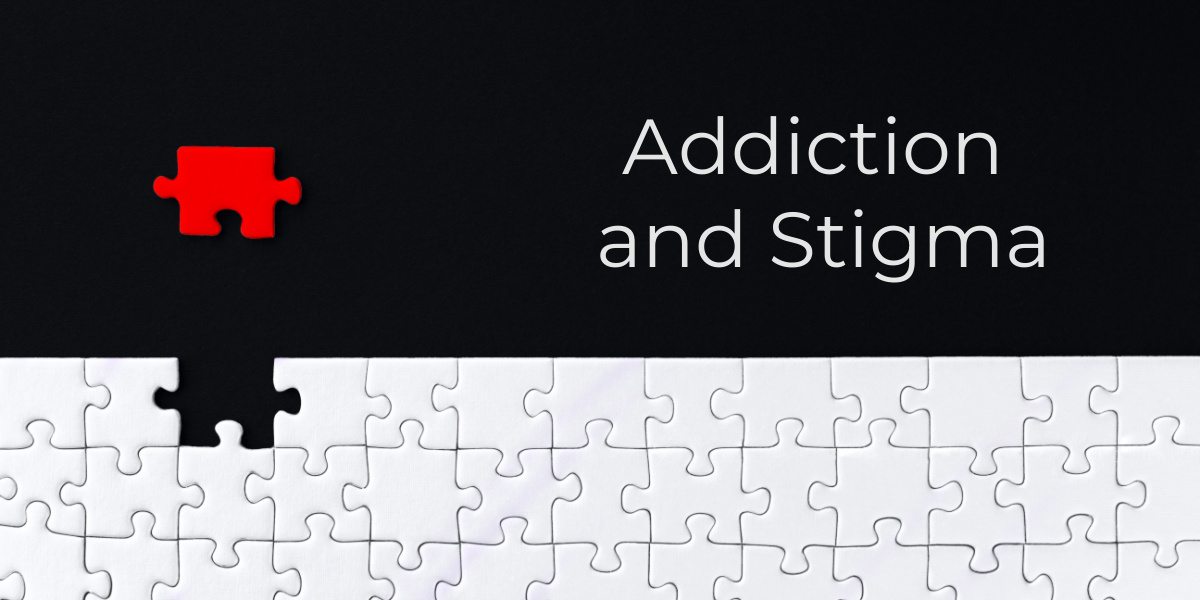The stigma surrounding addiction affects people’s recovery journeys and sobriety outcomes. This guide explains what addiction stigma is and how it has changed through the years. It also explains how stigma can become a barrier to addiction treatment and how we can adopt a destigmatized, empowering view of addiction.

What is stigma and how does it affect addiction
Stigma is a negative assumption that leads to discrimination. In the context of substance use disorder (SUD), stigma entails false beliefs and harmful stereotypes about addiction. These opinions translate into negative attitudes and behaviors towards people with addiction.[1]
Stigma affects addiction because it assumes cause and controllability. A common prejudice against people with addiction is that their poor choices are the sole cause of addiction, and their willpower alone is enough to overcome the condition.[2]
However, this view does not account for the physiological and psychological aspects of addiction. Although an inclination should not necessarily translate into reality, ignoring this challenge makes it harder for people with addiction to start their recovery journey.
Related: Crack Addiction and Stigma
Stigma as a barrier to addiction treatment
A destigmatized view of addiction aims to solve the problem instead of placing blame and the full onus on addicted people. A stigmatized view of addiction focuses on judgmental assumptions about the individual’s moral failing and less on tackling the illness itself.
Below are four ways stigma can become a barrier to addiction treatment.
1. Impaired treatment-seeking
One common prejudice is that having an SUD points to an inevitable and immutable flaw in the individual, such as character or moral build. This perception can dissuade people with addiction from seeking treatment and medical professionals from offering it.[3]
2. Bad public policy
People with substance use disorder are often commonly thought of and portrayed as dangerous, violent, and unpredictable. This view may be evident at a personal level, leading others to systematically avoid people with addiction – even those in recovery. Additionally, this prejudice can lead to public policy changes, such as restricting the rights of people with SUD.[5]
3. Affected healthcare delivery
Medical professionals may also have prejudices about addiction, so they might use negative and accusatory language, thus creating a strained treatment environment. Their negative attitudes and prejudice might also prevent them from offering the right treatment promptly.[2]
Additionally, inflicting shame on patients does not just rob people with SUD of their dignity. It can lead them to avoid life-saving treatment in the future or lead to relapse down the road.
4. Impeded reintegration into society
Part of the recovery process entails reentering society. Stigma can make reintegration harder in numerous ways.
For example, employers may refuse to offer jobs to people with SUD, even in recovery, or may establish more drastic conditions to gain employment. Regular people may also avoid interactions with a person with a history of addiction.
Similarly, prejudices from healthcare providers may have practical consequences on their patients’ lives. For instance, waiting longer to receive treatment at a healthcare clinic might lead the person with SUD to be late for work or at an appointment with social services. As such, they can lose their jobs or custody of their children.[5]
How stigma towards addiction has changed
Historically, addiction was viewed as a moral failing or weakness. Individuals who struggled with addiction were frequently blamed for their condition and were often ostracized or punished for their perceived lack of willpower or morality.
As the understanding of addiction grew, it became seen more as a disease or medical condition. The medical model of addiction argues that substance use disorders are brain diseases that can be treated with medical intervention. This view contributed to less blame placed on the individual and an increasing emphasis on the need for treatment and support.[2]
Although better than previous paradigms, the medical model may also involuntarily lead to discrimination and decrease the public belief in addiction recovery treatment.[4]
One reason why framing substance use as a brain disease may create stigma is because these illnesses are also unjustly perceived as an immutable status quo. Additionally, the biological propensity for substance use disorder may be understood as an inevitability. This perception disempowers the individual with SUD.
The holistic understanding of addiction at the confluence of biological, psychological, personal, and social factors is more lucrative against stigma. This view empowers the individual to understand and then tackle their unique triggers and challenges, actively fighting addiction.
Seeing addiction as a changeable interplay of brain chemistry, mental health, environmental factors, and personal choices can equip individuals and give them the necessary scope of their condition. In fact, that is what cognitive behavioral therapy aims to do.
Media portrayals have also contributed to the reduced stigma.[4]
This destigmatized approach has led to the emergence of harm reduction strategies and a shift from punitive approaches to drug use to more therapeutic and rehabilitative ones. Instead of incarceration, there’s a greater emphasis on treatment and community-based interventions.
Related: Real Talk Recovery Training: Breaking the Stigma of Substance Use, How Large Language Models Talk About Addiction
How to reduce personal and external stigma toward addiction
Education is the first tool to reduce stigma because it reduces misinformation and prejudice. It also allows people to focus on the issue and not the individual, admitting that each person with SUD has innate worth as a human.[1]
Language is an equally important tool because words do more than describe reality; they can create it. Instead of using labels, person-centered language admits that the SUD is just one part of a person’s life and not their representation.[1][2]
The table below shows the difference between negative labels expressing prejudice and person-centered language.[1]
| Person-centered language | Negative label |
|---|---|
| Substance use disorder | Drug abuse/ drug habit |
| Person with alcohol use disorder | Alcoholic |
| Person with drug use disorder | Drug addict/ junkie |
| In recovery | Clean |




